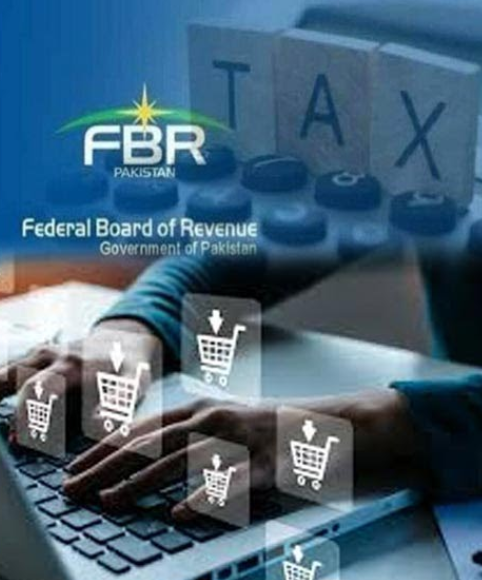In a significant move to tighten tax oversight on the booming e-commerce industry, Pakistan’s Federal Board of Revenue (FBR) has rolled out a series of aggressive measures targeting online buying and selling. The new rules make tax registration and deduction mandatory for all digital transactions — a step expected to fundamentally alter how e-commerce operates in the country.
E-Commerce Sellers Must Now Register or Risk Penalties
For the first time, all e-commerce sellers — including individuals, companies, and even foreign vendors operating digitally in or from Pakistan — are legally required to register with the FBR for income and sales tax purposes. The new rules apply across the board: whether sellers operate via online marketplaces (OMPs), independent websites, or mobile apps.
Platforms like Daraz, courier services handling deliveries, and digital payment providers are now prohibited from working with unregistered sellers. Non-compliance, whether by sellers or service providers, can trigger financial penalties under the updated tax regime.
Taxes Now Deducted at the Payment Stage
To tighten the net, the FBR has made changes to several tax laws. Payment service providers — including banks, fintechs, and digital gateways — must now deduct 1% tax on every digital transaction. If a customer opts for cash-on-delivery (COD), couriers will deduct a 2% tax before passing the money to sellers.
This withholding tax applies to both domestic and export sales, and is treated as a final tax liability for sellers — meaning there’s no further tax due on that income.
The government is clearly incentivizing digital payments over cash, aligning with its broader goal of pushing Pakistan toward a cashless economy.
Platforms and Couriers Face New Reporting Duties
Online marketplaces and delivery companies have been handed significant administrative responsibilities. They are now required to submit monthly withholding tax statements and sales tax reports to the FBR. These filings must detail seller identities, transaction amounts, tax collected, and payment channels used.
Notably, the responsibility for deducting and depositing tax on COD orders now rests squarely with courier services — regardless of whether the seller is affiliated with a marketplace or operating independently.
Sales Tax Also Tightened — Especially for Small Sellers
In parallel to the income tax changes, the FBR has also amended key sections of the sales tax law. Under the revised Section 3(7A), couriers and digital intermediaries must withhold sales tax on online orders. For cottage industries and small sellers not classified as Tier-1 retailers, this tax will be treated as the final amount — and they won’t be allowed to claim any input tax adjustments.
Larger businesses, however, will remain in the standard sales tax regime, where withheld tax can be adjusted against their overall tax liability.
Additionally, foreign sellers supplying goods digitally into Pakistan must now register for sales tax and comply with domestic tax reporting rules.
What It All Means: Tighter Compliance, Bigger Government Oversight
These sweeping reforms signal a new era of tax enforcement in Pakistan’s digital marketplace. By shifting the burden of tax collection to intermediaries — banks, couriers, and marketplaces — the FBR aims to minimize evasion and bring previously untaxed sellers into the formal economy.
Critics argue the move could increase compliance costs for small businesses and platforms alike, but tax officials say it’s a necessary step to plug revenue leaks in an increasingly digital world.
Pakistan’s e-commerce sector has long operated with minimal oversight — that’s about to change.

